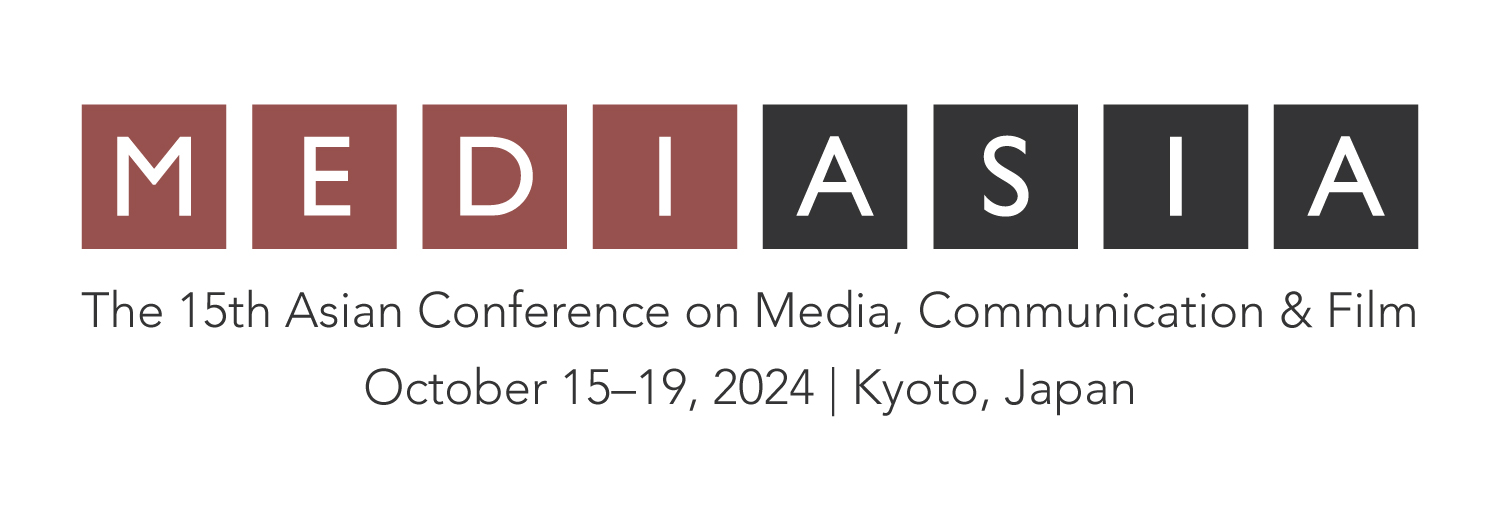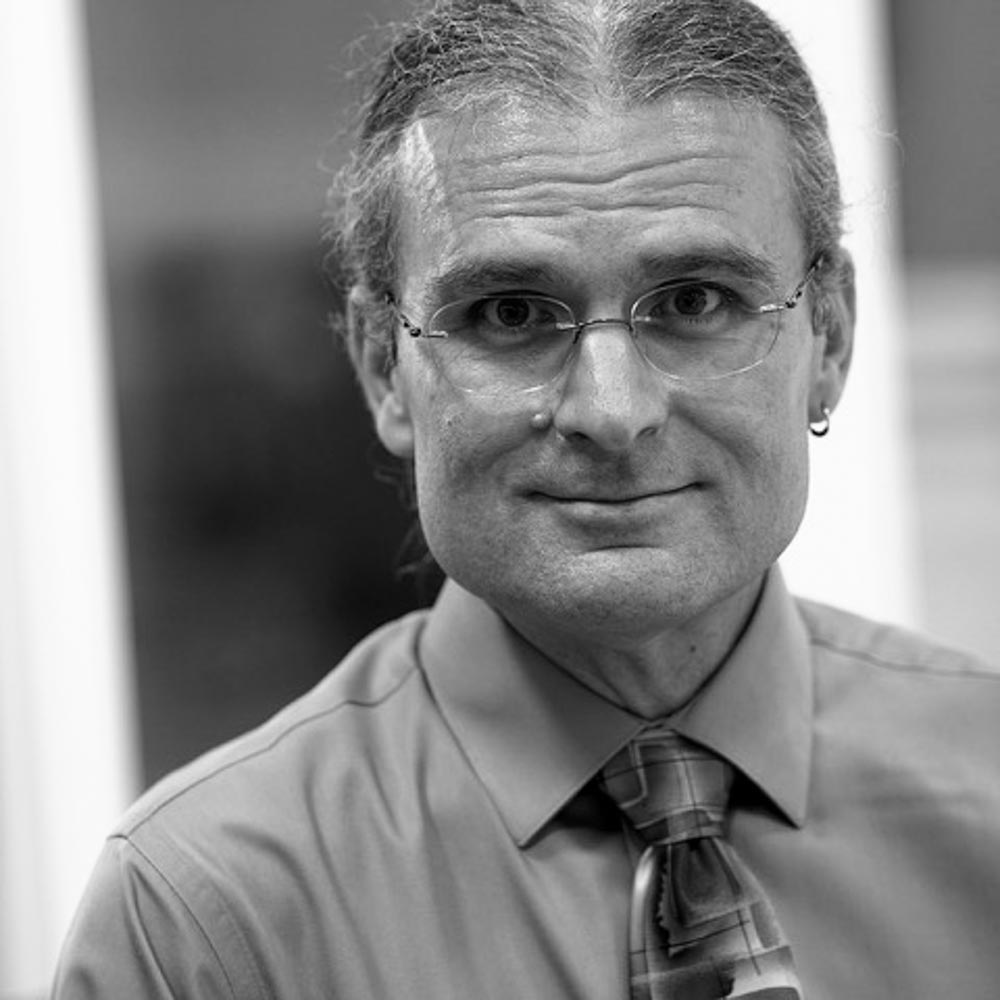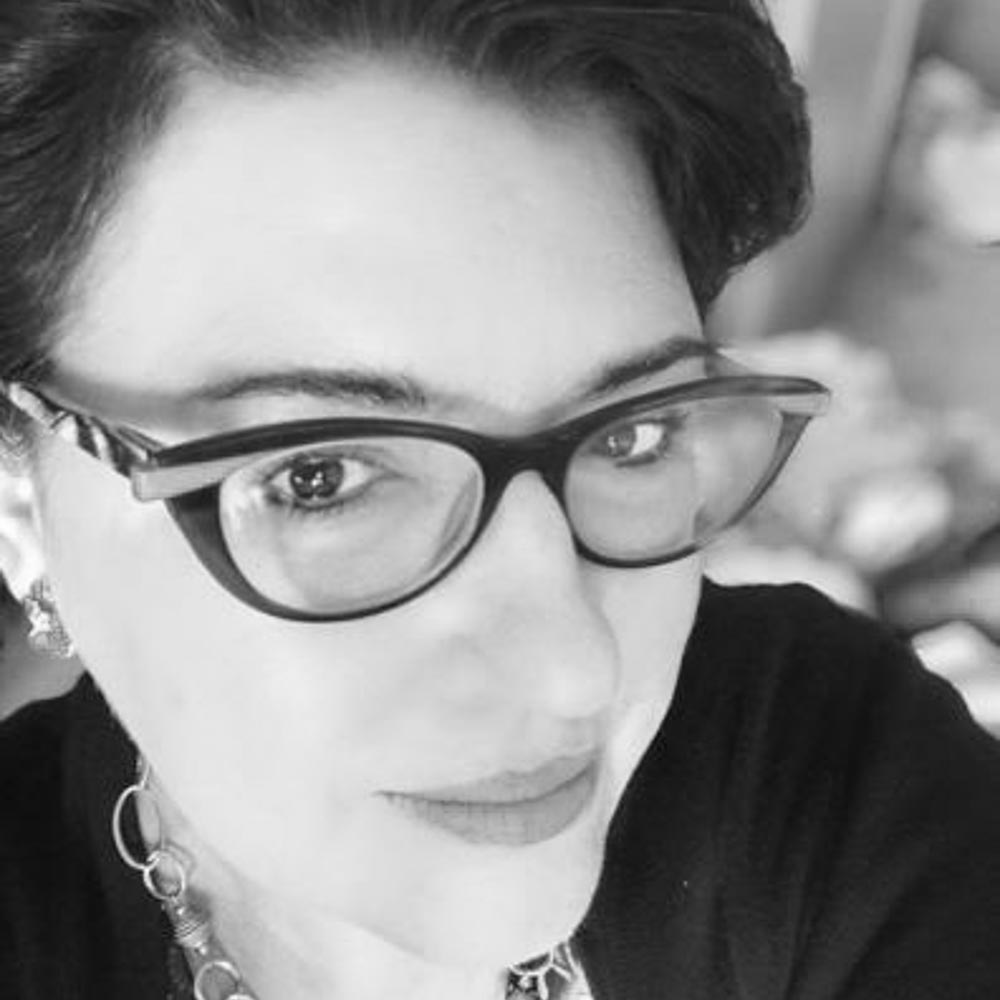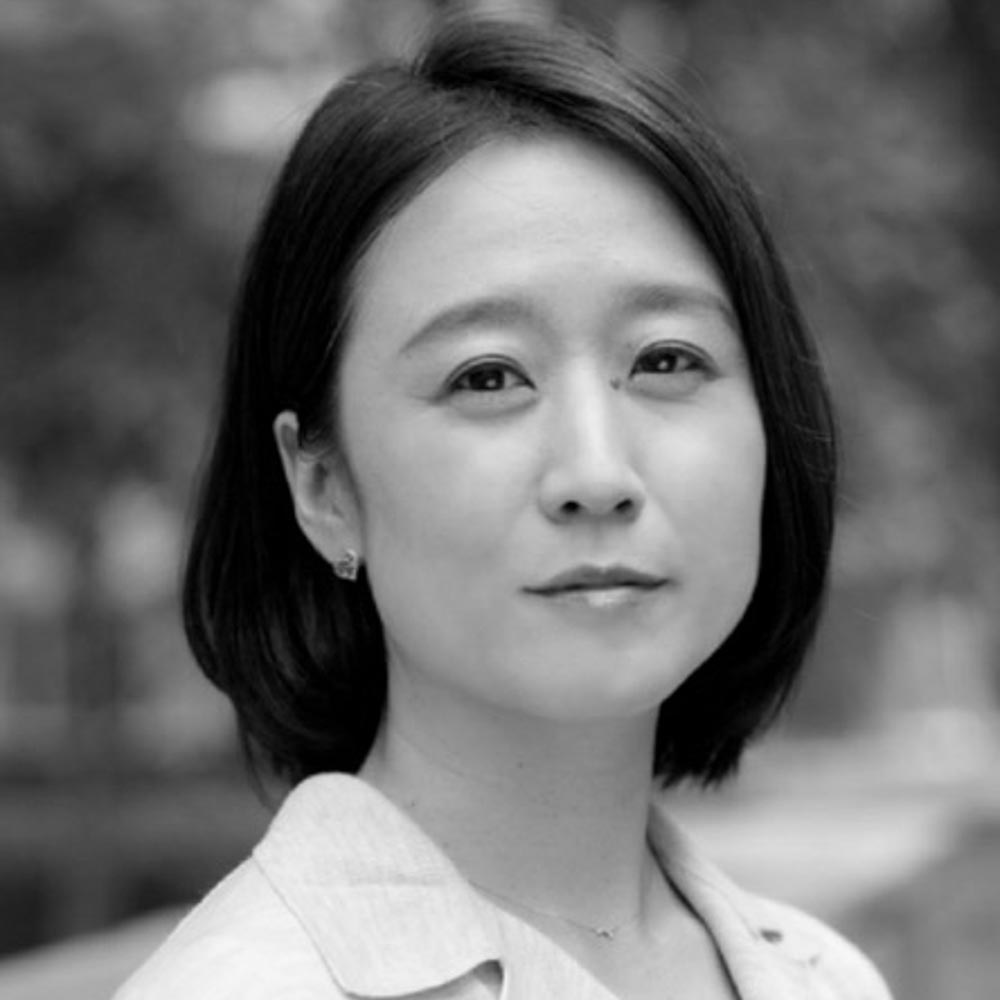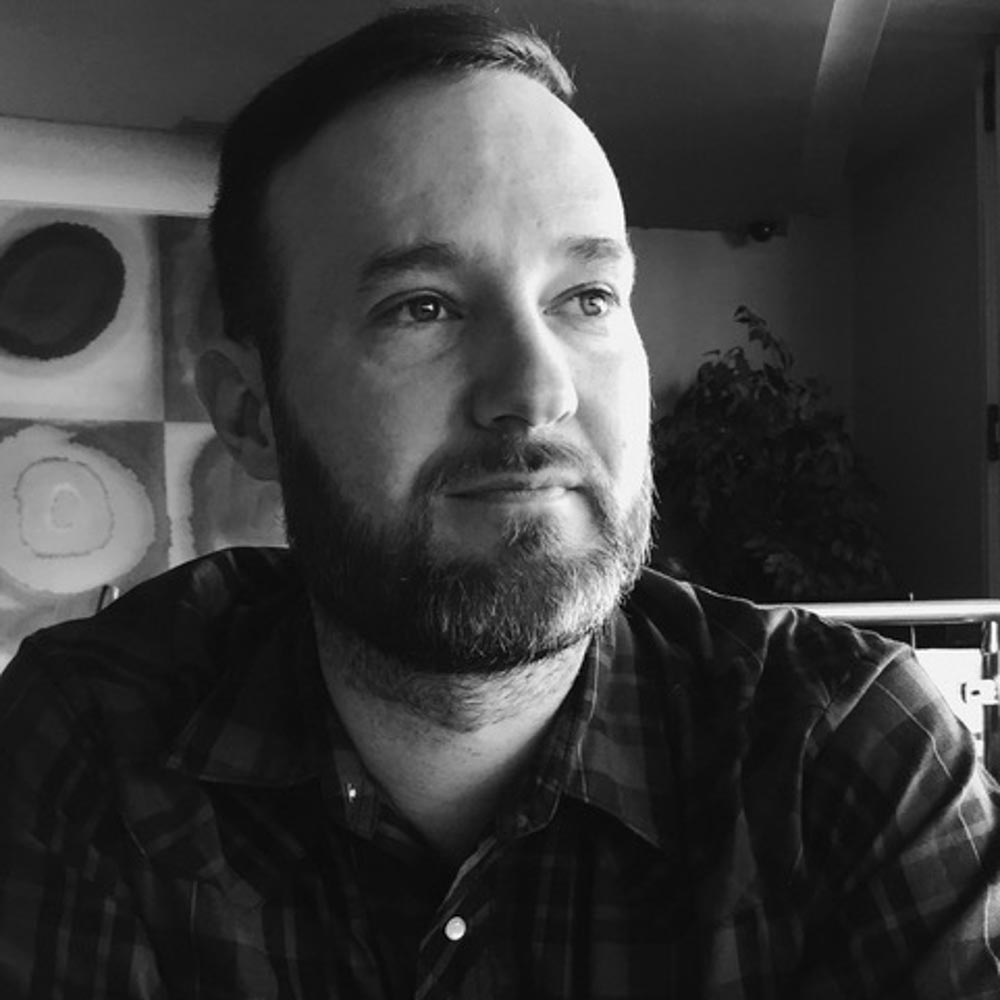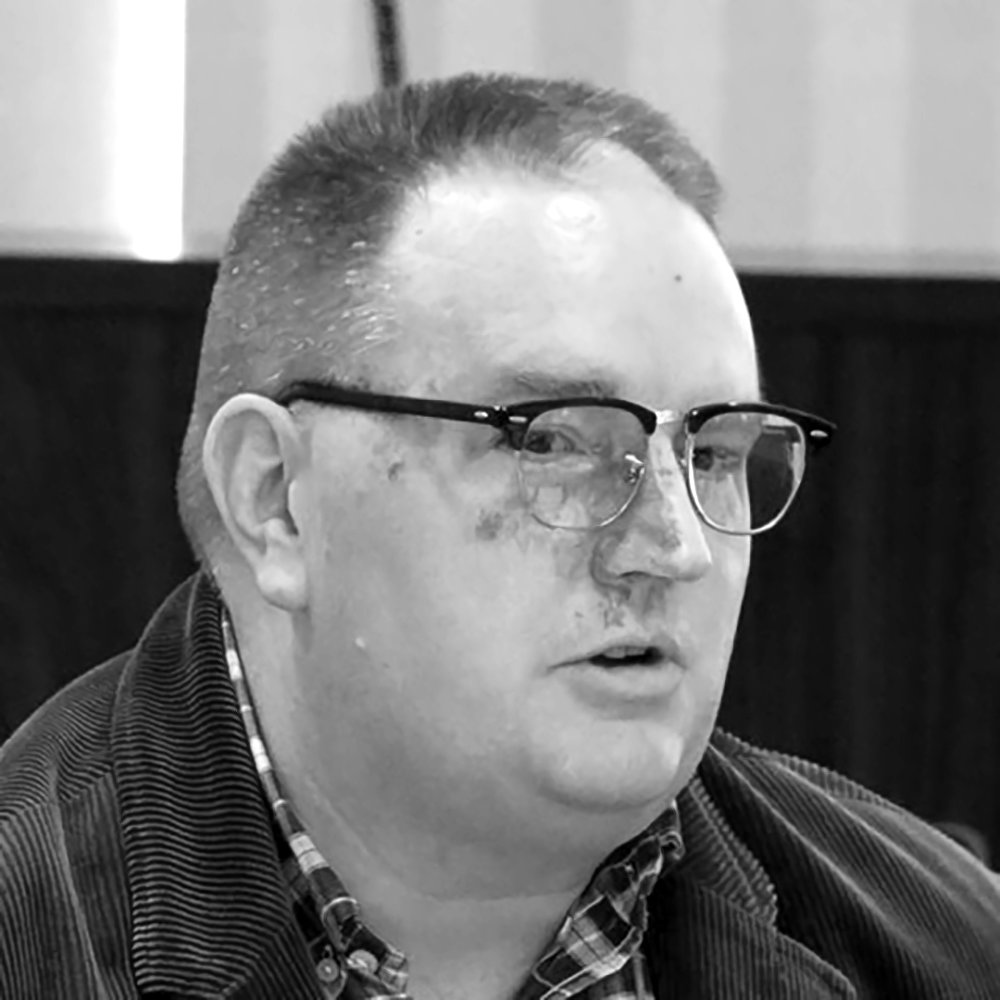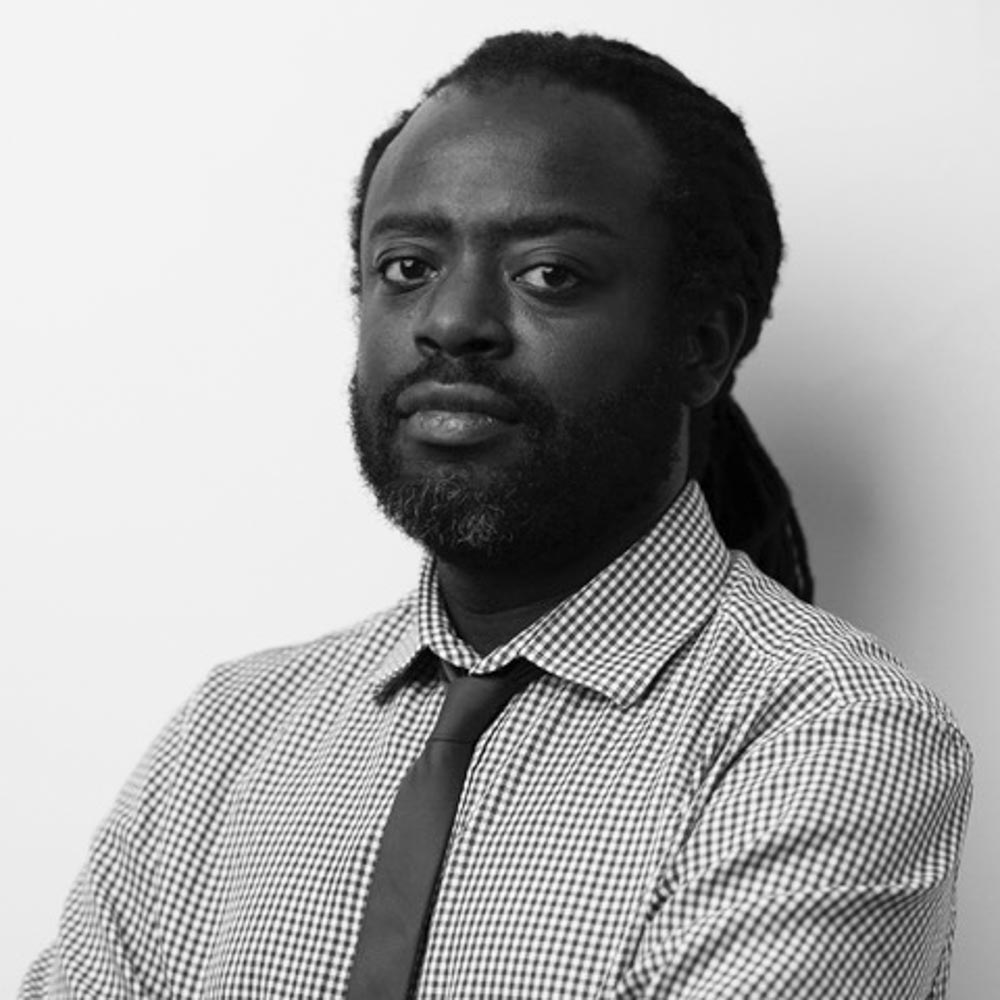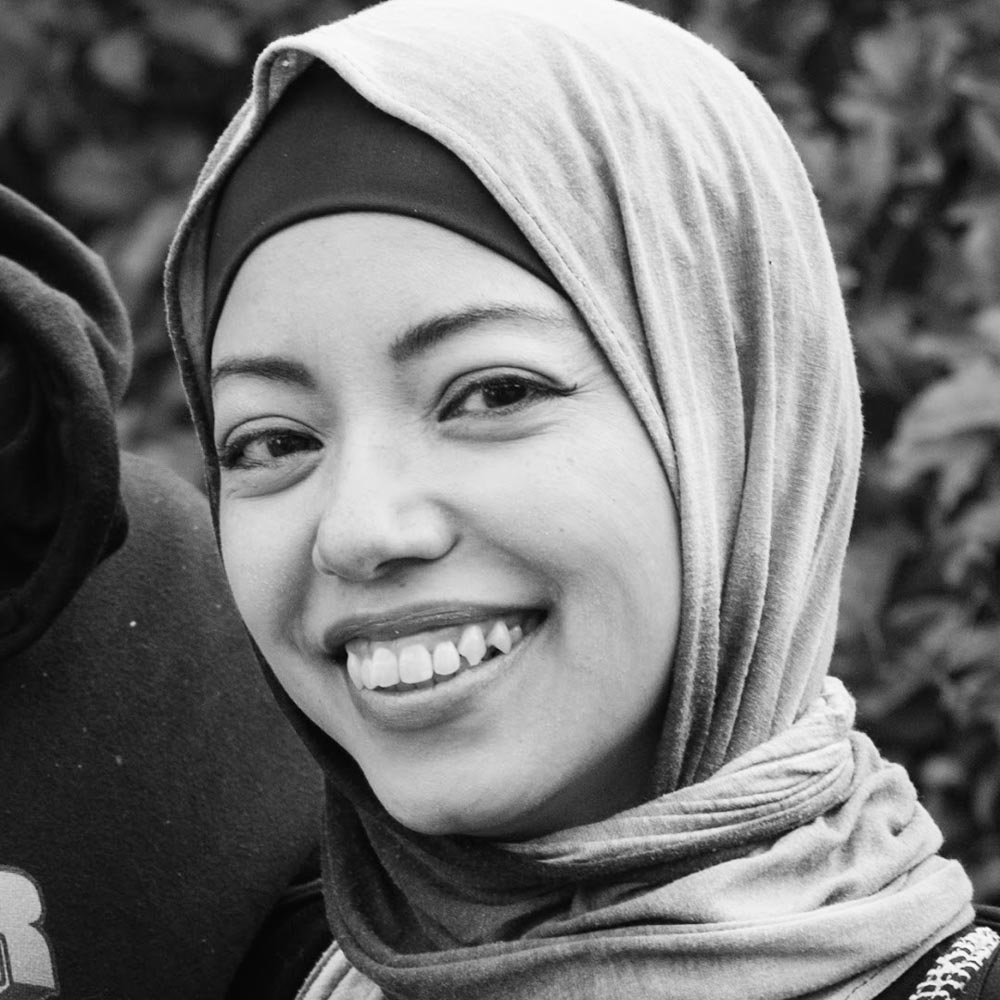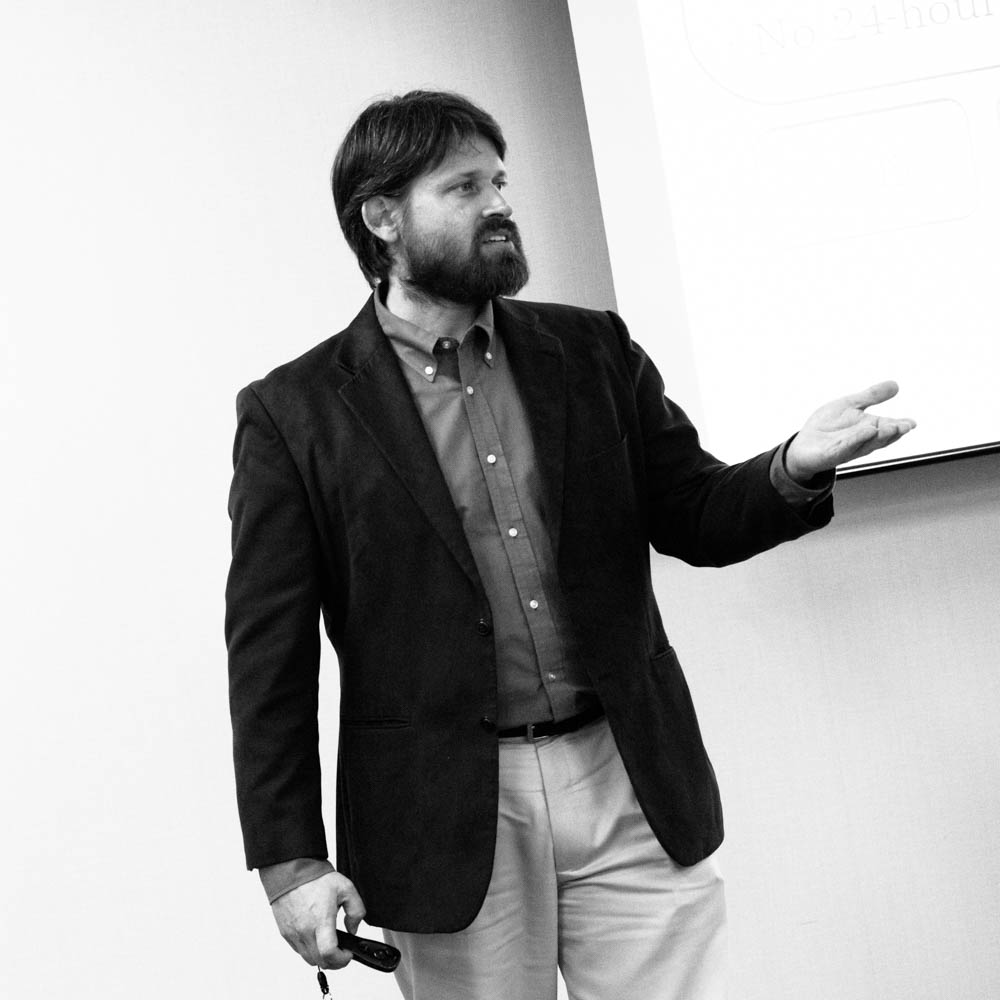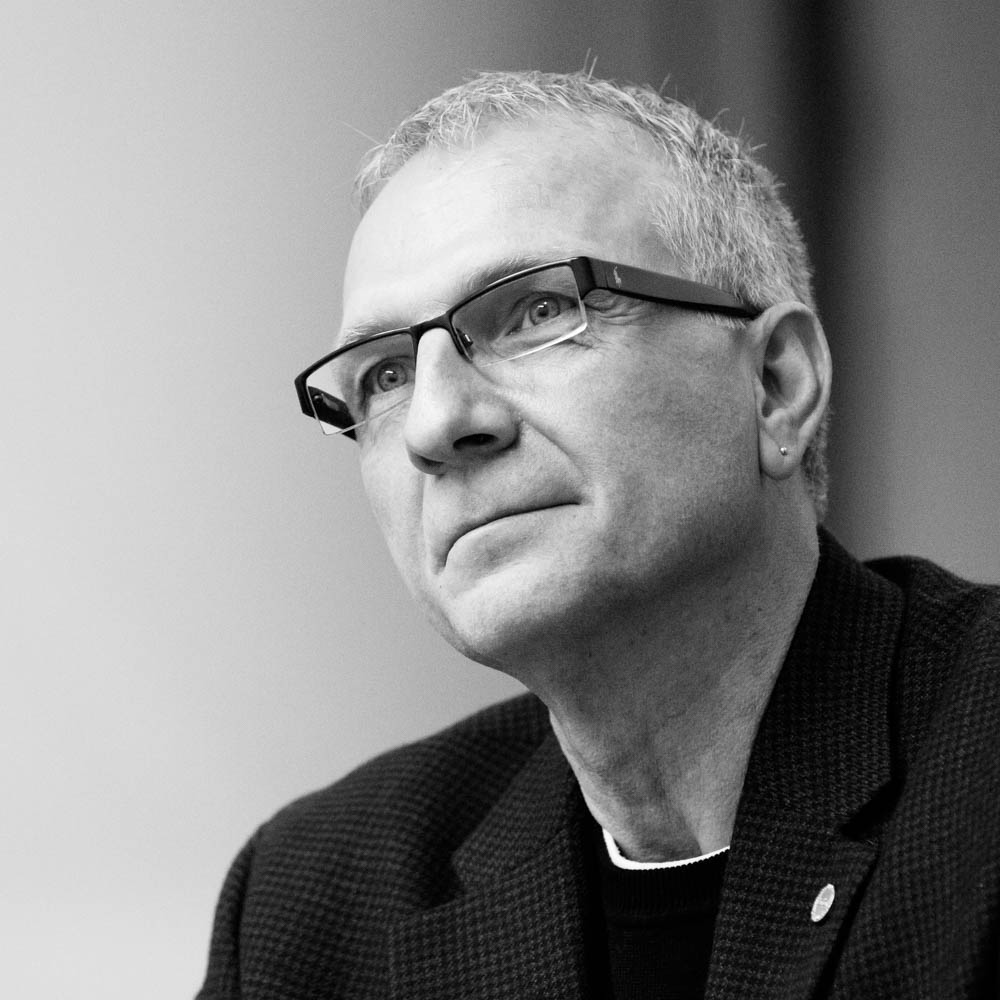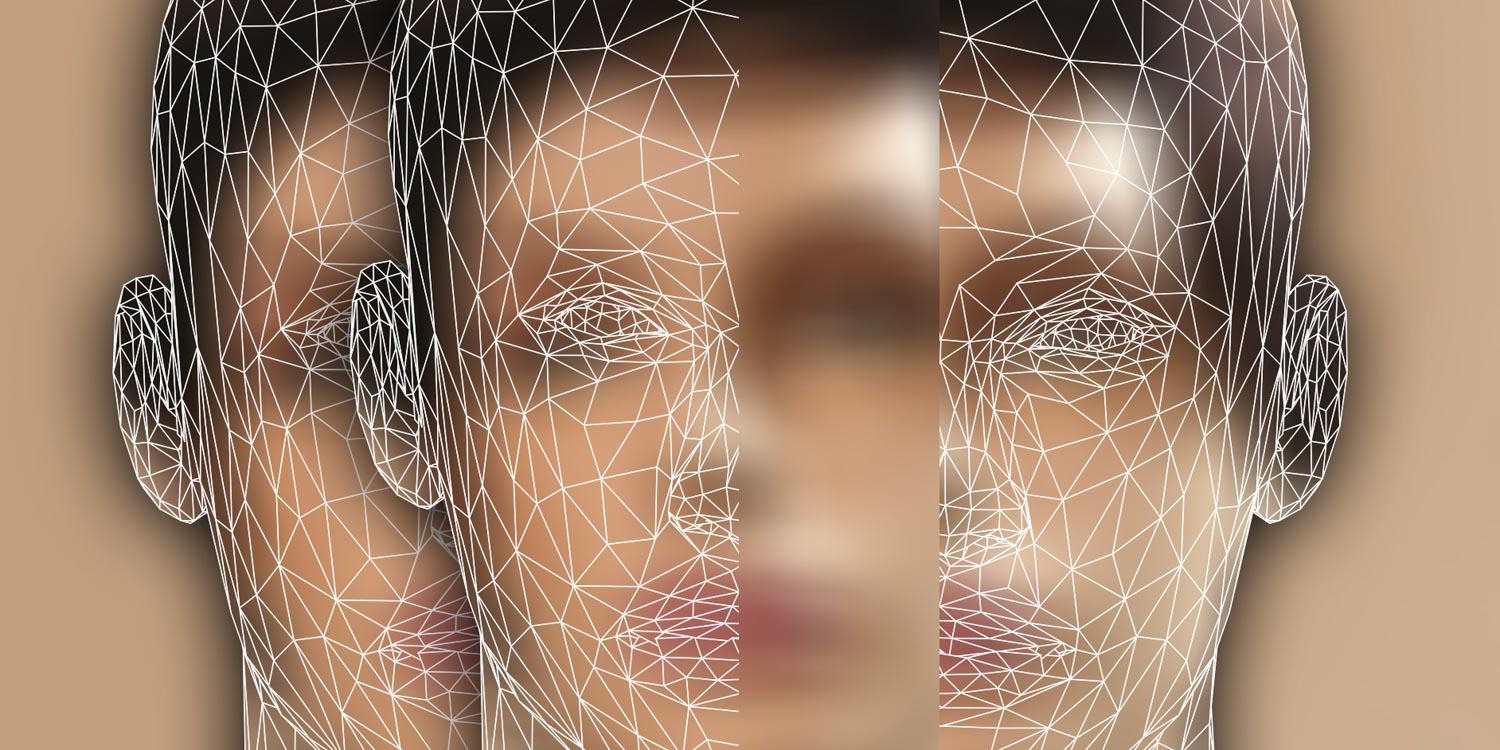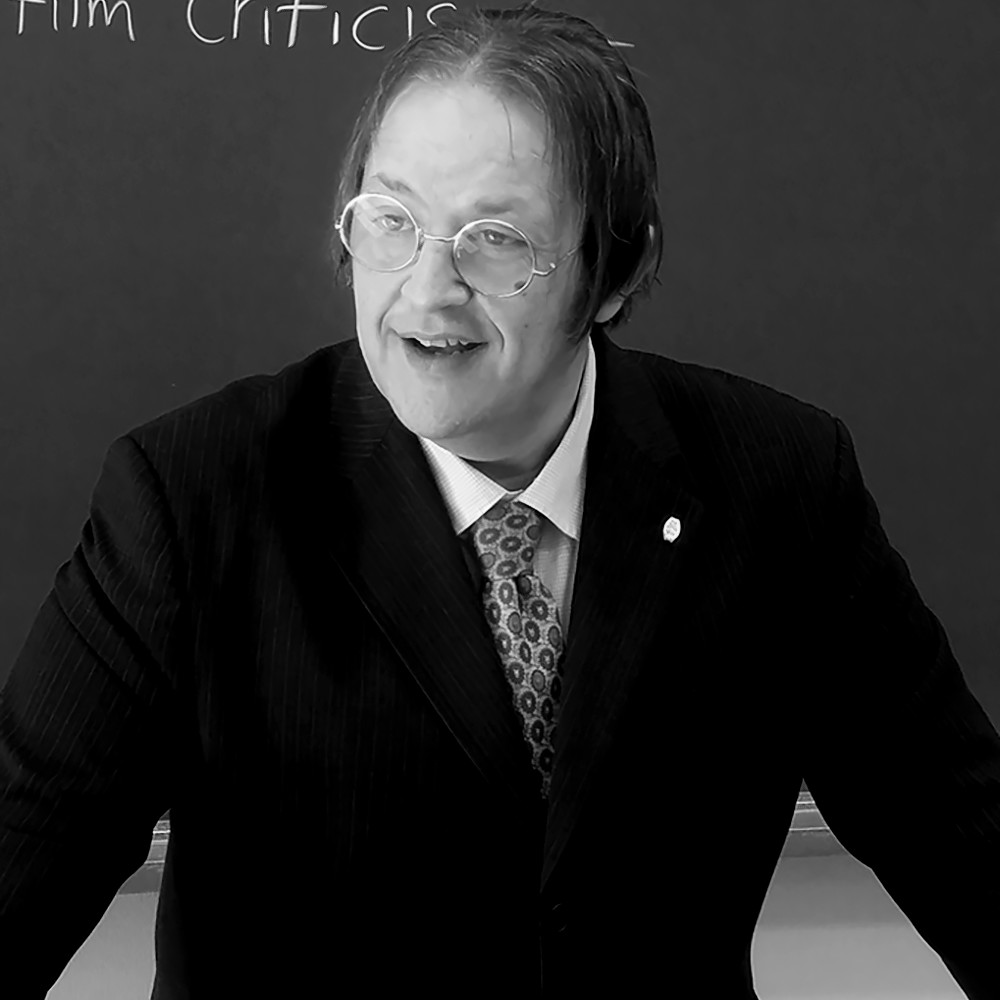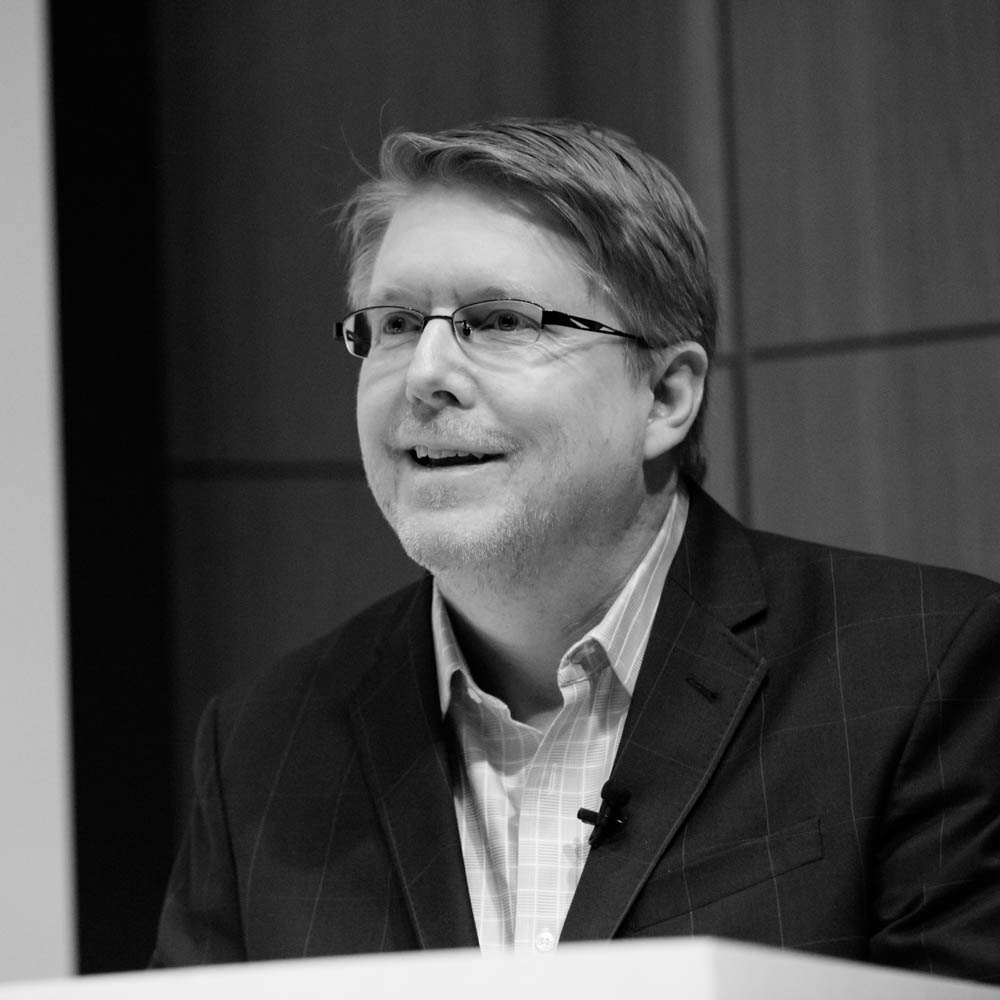Conference Theme: "Reclaiming the Future"
October 25-27, 2019 | Toshi Center Hotel, Tokyo, Japan
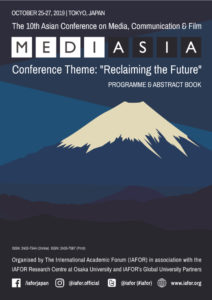 We live in a period characterised by rises in regionalism, nationalism and authoritarianism; a time of great global uncertainty and anxiety, as well as inequality and iniquity which both reflects and drives political divide, and undermines international systems of cooperation. Clashes of identities, beliefs and ideologies are evident in academia, media and the arts, contributing to a feeling that humanity is spiralling out of control; that our relationships with each other, as well as with the earth and environment, have never been worse.
We live in a period characterised by rises in regionalism, nationalism and authoritarianism; a time of great global uncertainty and anxiety, as well as inequality and iniquity which both reflects and drives political divide, and undermines international systems of cooperation. Clashes of identities, beliefs and ideologies are evident in academia, media and the arts, contributing to a feeling that humanity is spiralling out of control; that our relationships with each other, as well as with the earth and environment, have never been worse.
Yet, as humans, we are not conditioned by fear alone, but instead by a remarkable ingenuity, and a capacity for hope, self-reflection, activism and action. This agency to improve our own lives, and those of others, is the theme of this international conference, inviting us to consider the ways in which we contextualise and process the past, reimagining ourselves, our relationships, and our environments; driving positive change and reclaiming the future as a time we look towards with hope, and even optimism.
This conference is organised by IAFOR in association with the IAFOR Research Centre at the Osaka School of International Public Policy (OSIPP) in Osaka University, Japan.
MediAsia2019 Photo Report
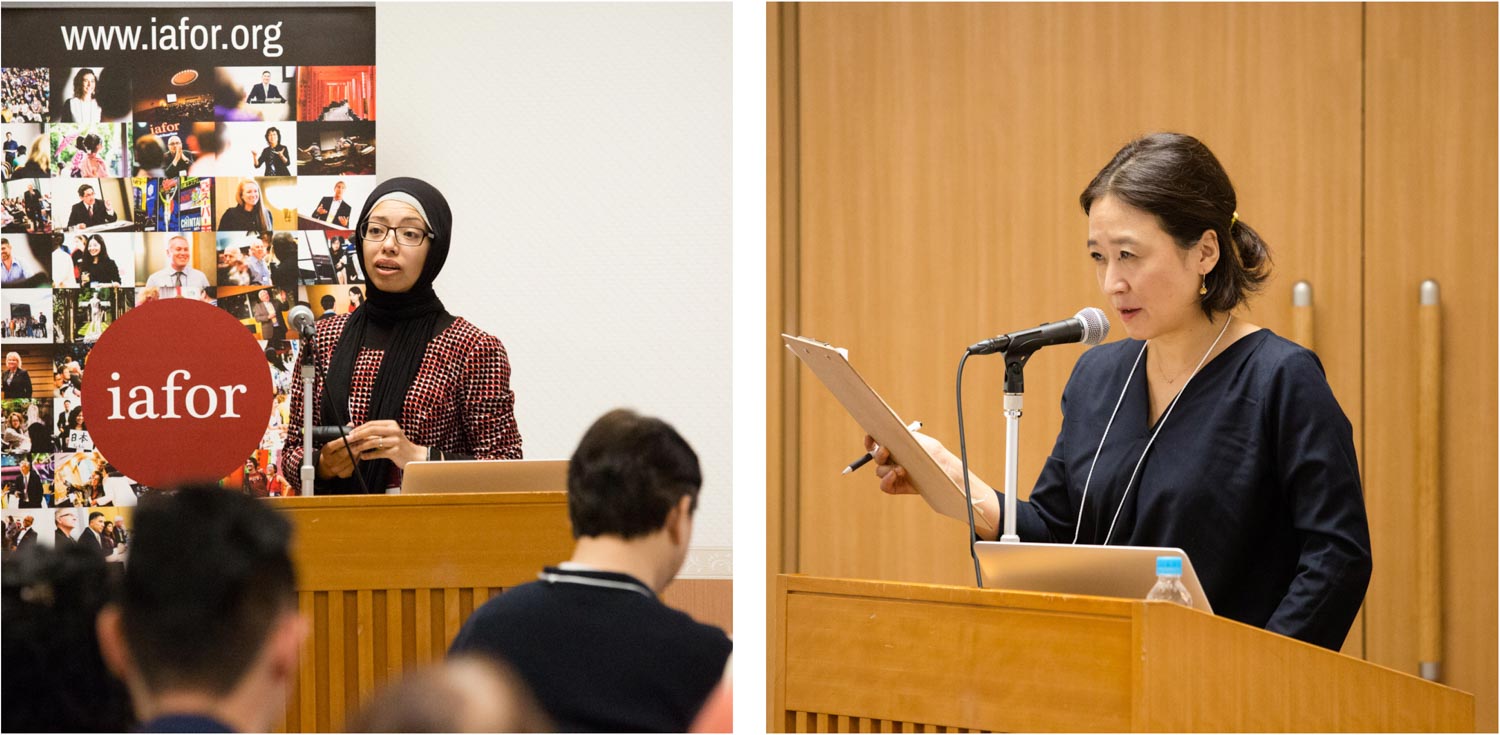
Above left: Dr Nasya Bahfen of La Trobe University (Australia) delivers her Keynote Presentation, “Australia and Asia: Media and Identity in a Time of Change”, in which she discusses issues such as gender and race in media, drawing on her years of experience as a journalist and scholar. Dr Bahfen also served on the Organising Committee for the conference. Above right: Ms Erina Ito, a renowned journalist at Asahi Shimbun (Japan), delivers her Keynote Presentation, titled “Gender Equality in the Japanese Film Industry”. In addition to discussing issues in the film industry, Ms Ito offered numerous examples of the overt exploitation of feminine sexuality in Japanese culture, noting that gender equality was not just an issue in the workplace, but in society at large.
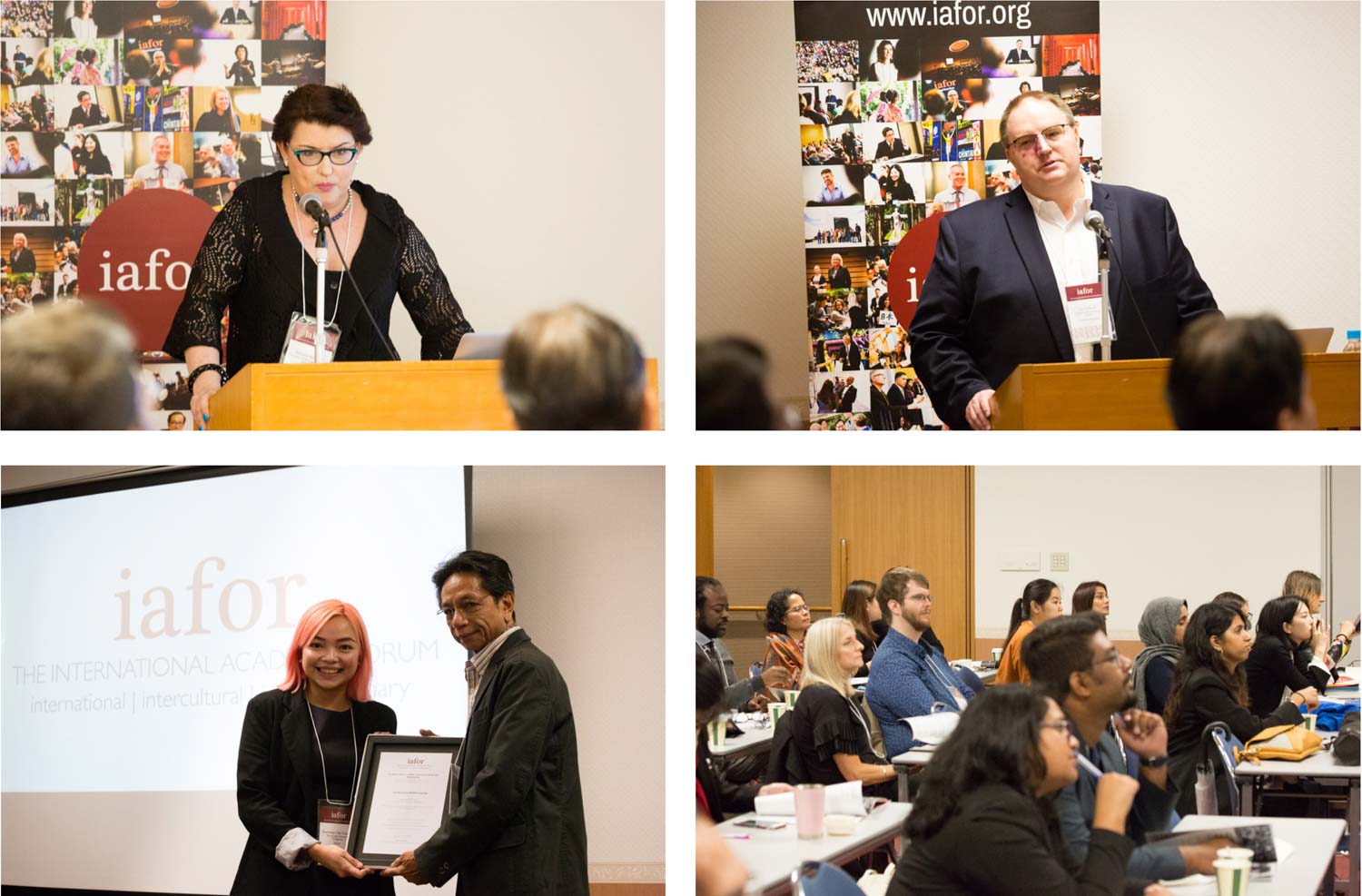
Above, clockwise from top left: Dr Arianne Rourke, from the University of New South Wales (Australia), offered a Featured Presentation titled “Media, Communication and Film as a Catalyst for Change: How Animations in Teaching International Students (TIS) Project Become Public Pedagogy”, showing how international students in Australia are benefitting from animations incorporated into teaching strategies. Mr Timothy Pollock, from Osaka Kyoiku University & Hagoromo University of International Studies (Japan), played a major role in bringing together the conference as a member of the Organising Committee, and is seen here moderating the panel discussion “Observation vs. Immersion: Trends in Contemporary Visual Anthropology”. The engaged crowd listens intently to the stellar line-up of plenary speakers. International Academic Advisory Board member Professor Monty P. Satiadarma, of Tarumanagara University (Indonesia), presents the IAFOR Scholarship to Donnalyn De Chavez, of De La Salle University (Philippines) who won the award for her work titled “The Self on Instagram: A Study on How People With Different Hair Colors Use Instagram for Online Self-presentation”.
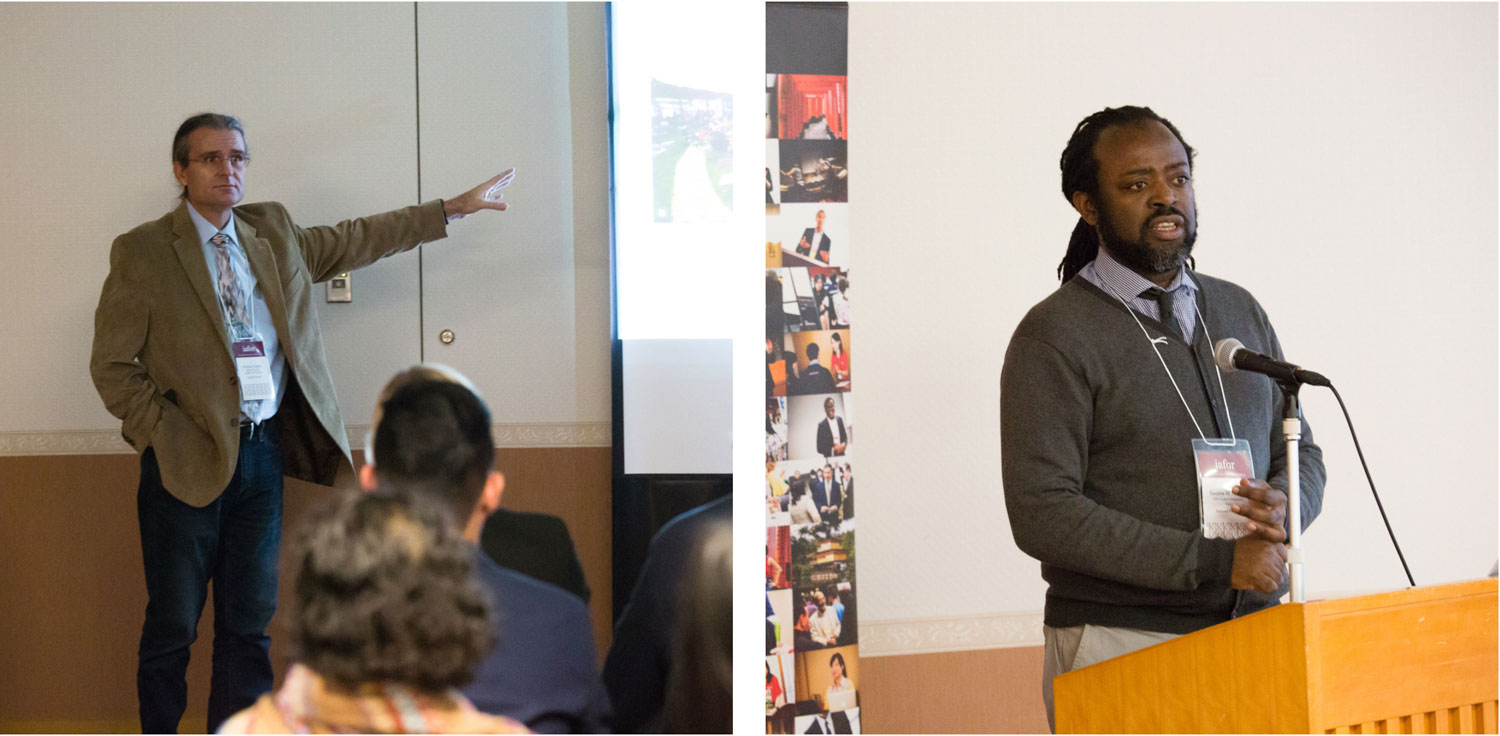
Above: Panellists Dr Michael R. Ogden (left) of Zayed University (UAE), and Dr Kwame M. Phillips (right) of John Cabot University (Italy), provide comments on filmmaking during their panel, “Observation vs. Immersion: Trends in Contemporary Visual Anthropology”.
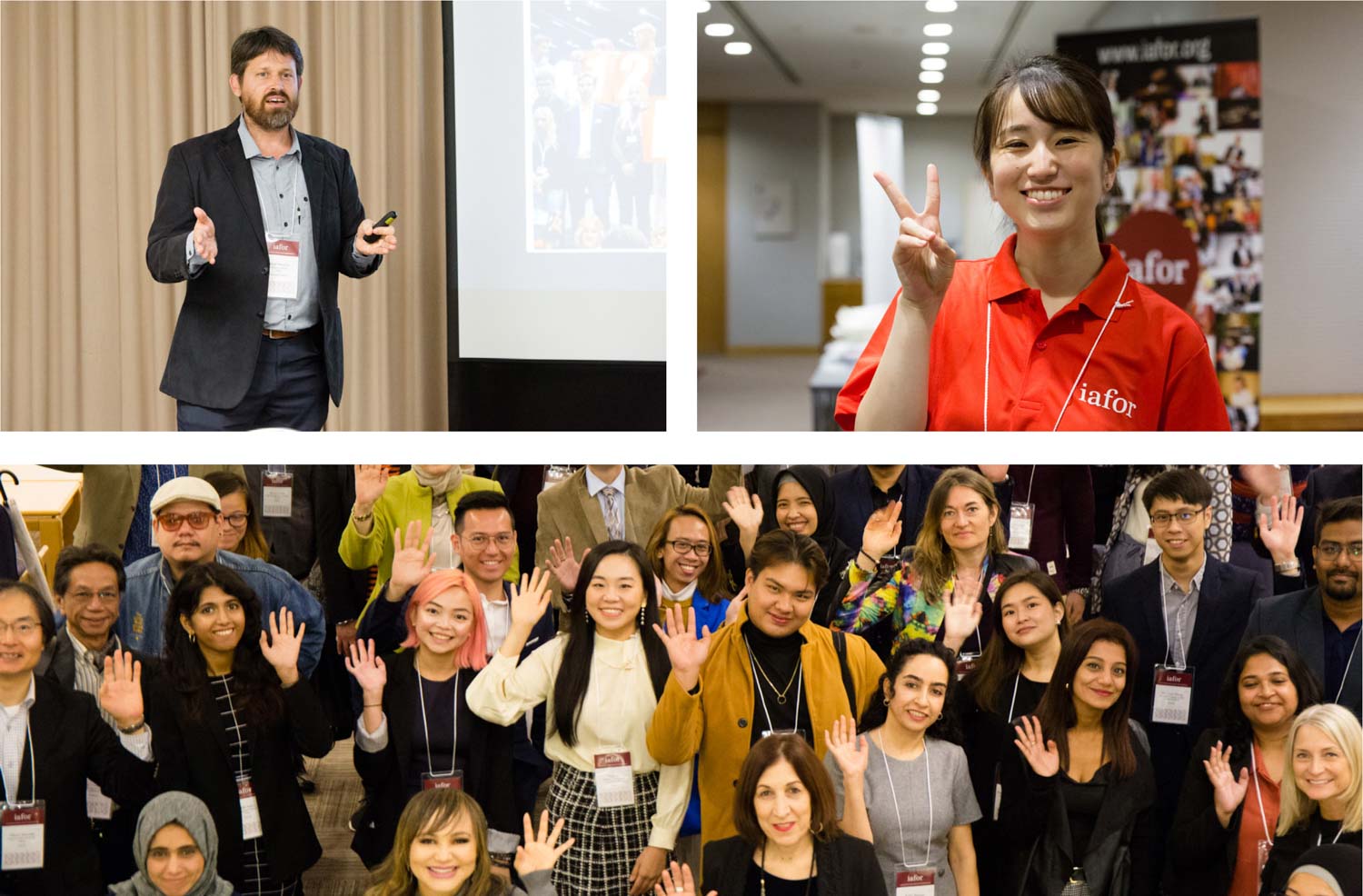
Above, clockwise from top left: Dr Virgil Hawkins, from Osaka University (Japan) engages the audience with a discussion of the media’s coverage of climate change in his Featured Presentation, “Climate Coverage: Getting More and Getting it Done Right”. Dr Hawkins also served on the Organising Committee for the conference. One of our amazing volunteers who, along with others from various universities in the Tokyo area, commented that the experience was both rewarding and fun, and IAFOR is grateful for all their hard work. An enthusiastic and notably international crowd takes time to pose for a photo as they make MediAsia2019 a great place to share new ideas, future research, and differing perspectives within a supportive and collaborative environment.
Speakers
-
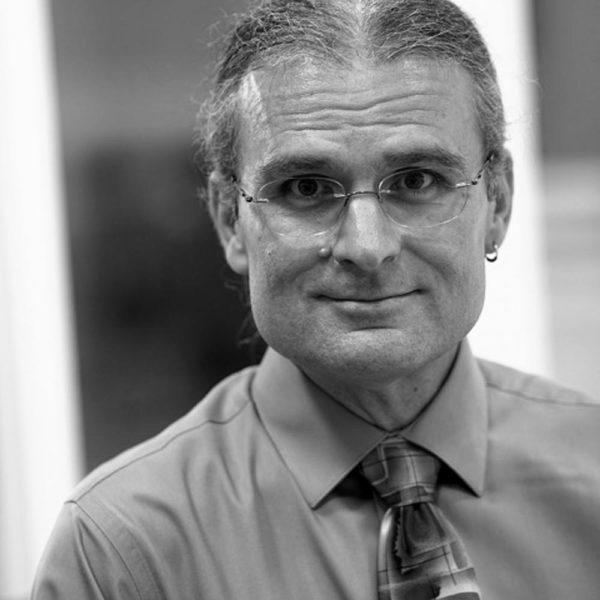 Michael R. OgdenZayed University, Dubai
Michael R. OgdenZayed University, Dubai -
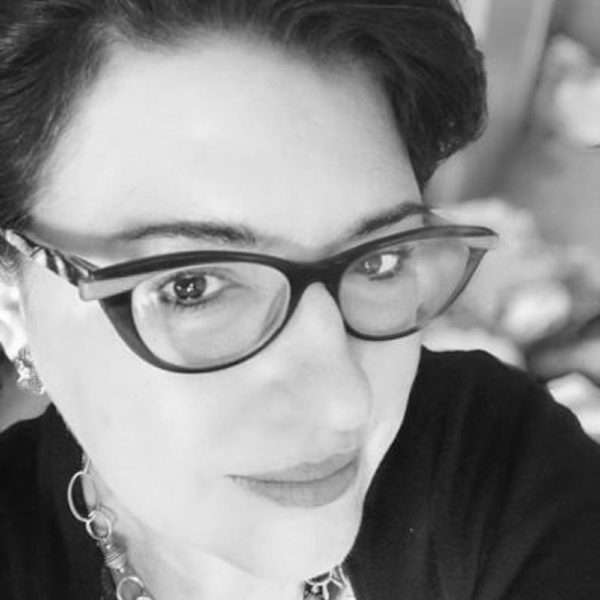 Arianne RourkeThe University of New South Wales, Australia
Arianne RourkeThe University of New South Wales, Australia -
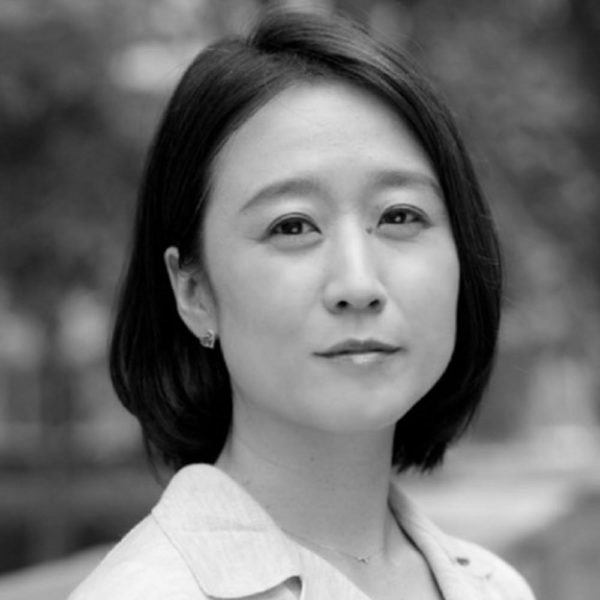 Erina ItoAsahi Shimbun, Japan
Erina ItoAsahi Shimbun, Japan -
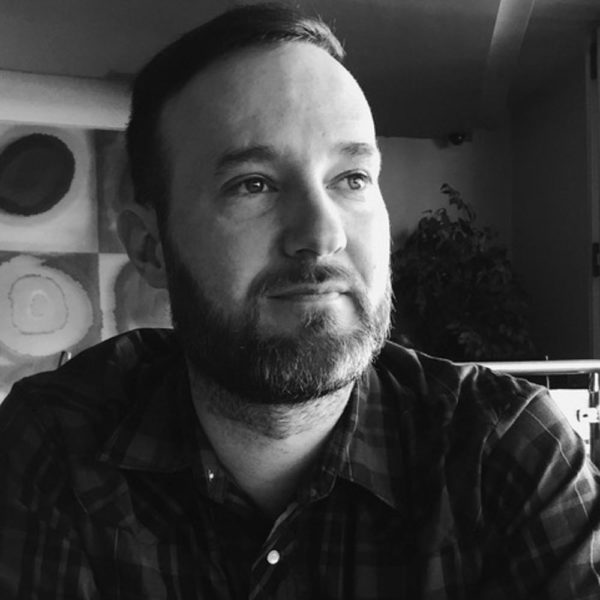 Roger HornFilmmaker, Germany
Roger HornFilmmaker, Germany -
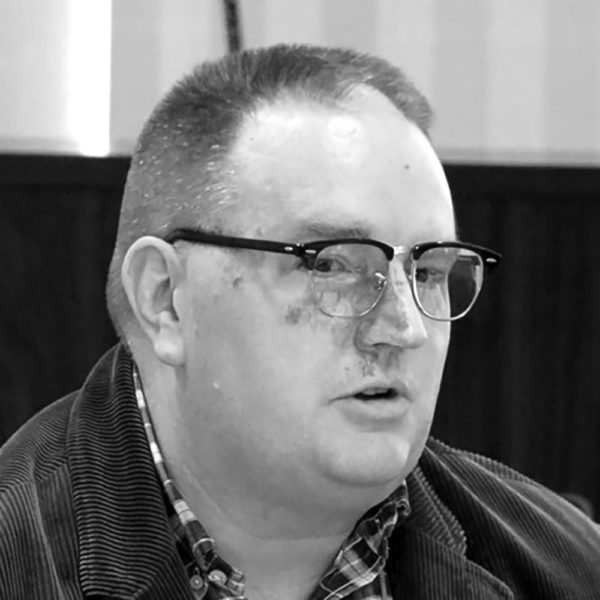 Timothy W. PollockOsaka Kyoiku University & Hagoromo University of International Studies, Japan
Timothy W. PollockOsaka Kyoiku University & Hagoromo University of International Studies, Japan -
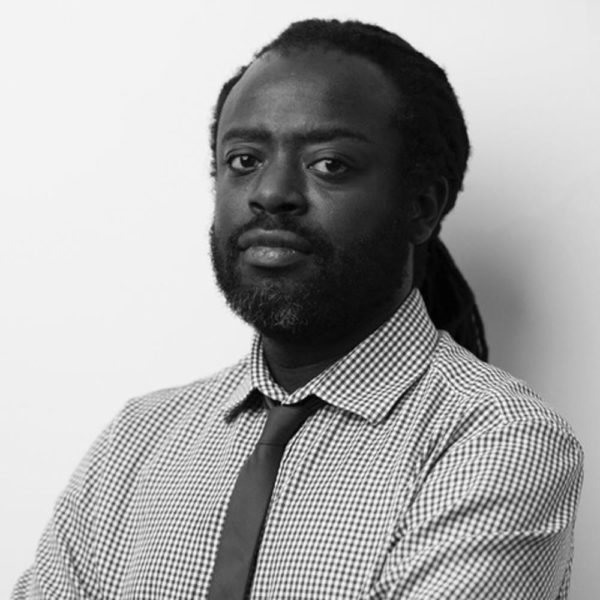 Kwame M. PhillipsJohn Cabot University, Italy
Kwame M. PhillipsJohn Cabot University, Italy -
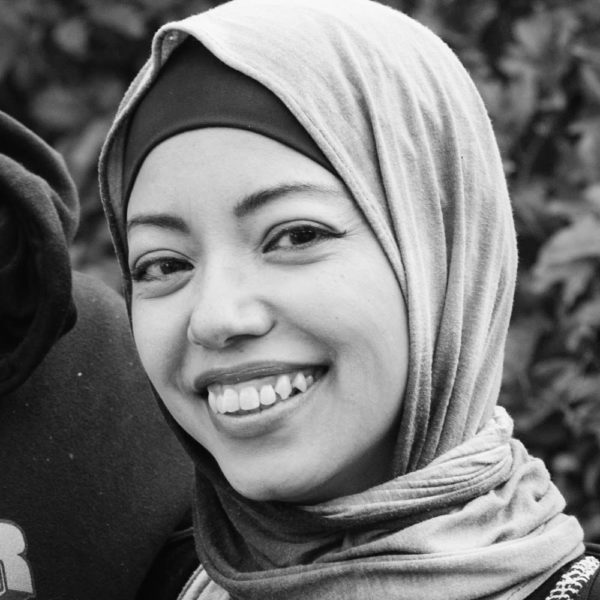 Nasya BahfenLa Trobe University, Australia
Nasya BahfenLa Trobe University, Australia -
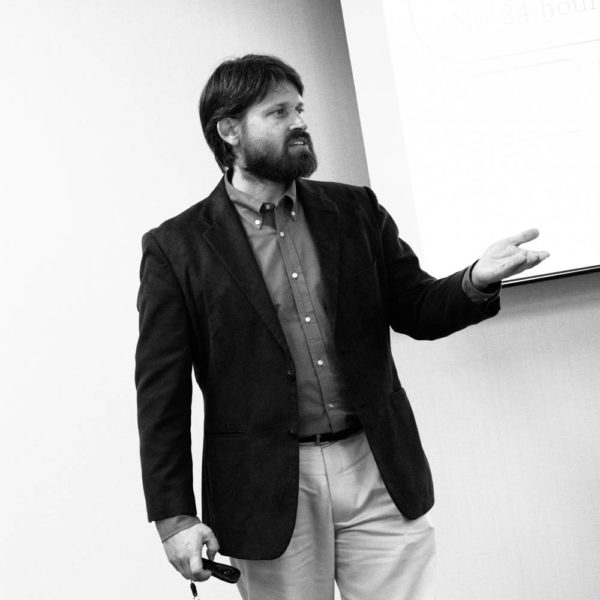 Virgil HawkinsOsaka University, Japan
Virgil HawkinsOsaka University, Japan -
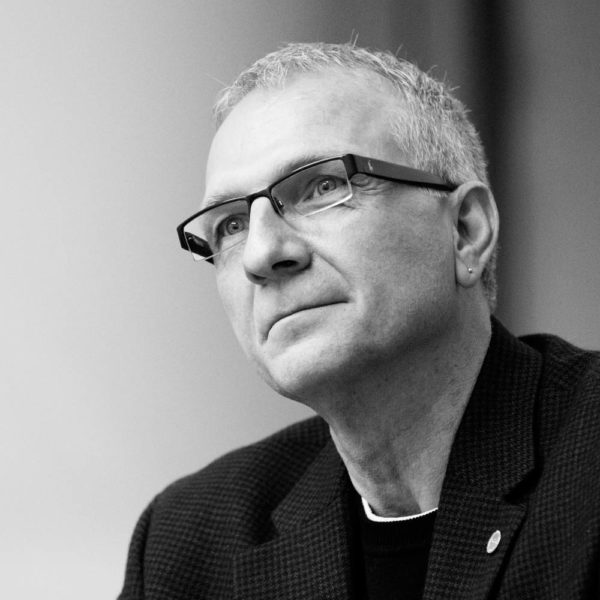 Gary E. SwansonUniversity of Northern Colorado, USA (fmr.)
Gary E. SwansonUniversity of Northern Colorado, USA (fmr.)
Programme
-
 Climate Coverage: Getting More and Getting it Done RightFeatured Presentation: Virgil Hawkins
Climate Coverage: Getting More and Getting it Done RightFeatured Presentation: Virgil Hawkins -
 Media, Communication and Film as a Catalyst for Change: How Animations in Teaching International Students (TIS) Project Become Public PedagogyFeatured Presentation: Arianne Rourke
Media, Communication and Film as a Catalyst for Change: How Animations in Teaching International Students (TIS) Project Become Public PedagogyFeatured Presentation: Arianne Rourke -
 Gender Equality in the Japanese Film IndustryKeynote Presentation: Erina Ito
Gender Equality in the Japanese Film IndustryKeynote Presentation: Erina Ito -
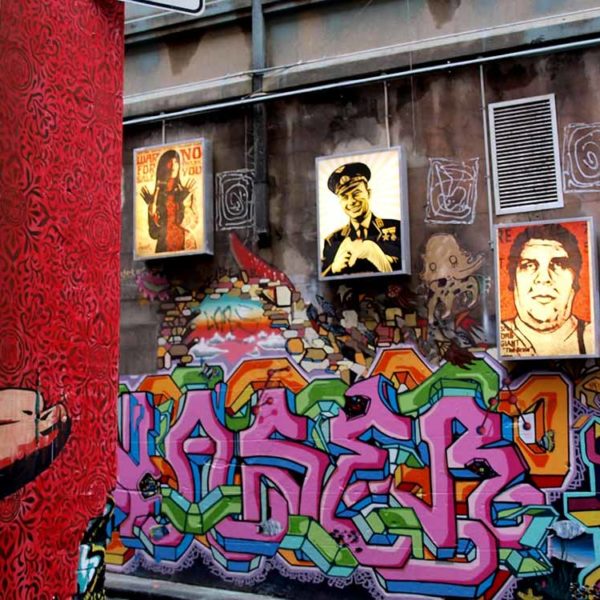 Australia and Asia: Media and Identity in a Time of ChangeKeynote Presentation: Nasya Bahfen
Australia and Asia: Media and Identity in a Time of ChangeKeynote Presentation: Nasya Bahfen -
 Observation vs. Immersion: Trends in Contemporary Visual AnthropologyPanel Presentation: Timothy W. Pollock, Roger Horn
Observation vs. Immersion: Trends in Contemporary Visual AnthropologyPanel Presentation: Timothy W. Pollock, Roger Horn -
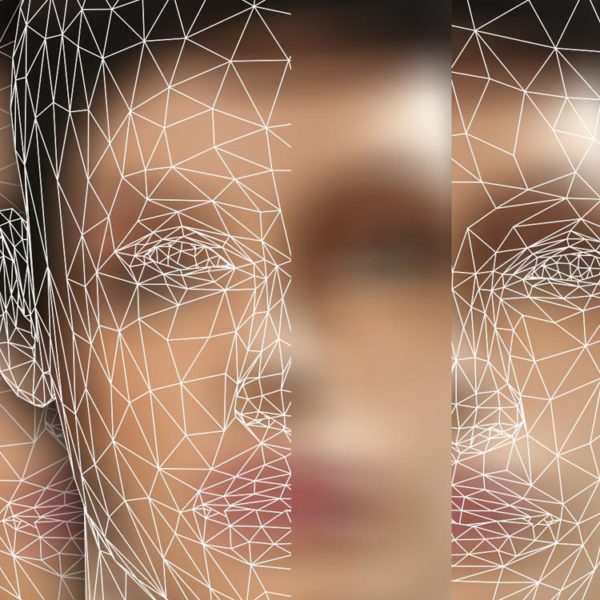 DeepfakeRoundtable/Panel Presentation: Gary E. Swanson
DeepfakeRoundtable/Panel Presentation: Gary E. Swanson
Organising Committee
The Conference Programme Committee is composed of distinguished academics who are experts in their fields. Conference Programme Committee members may also be members of IAFOR's International Academic Board. The Organising Committee is responsible for nominating and vetting Keynote and Featured Speakers; developing the conference programme, including special workshops, panels, targeted sessions, and so forth; event outreach and promotion; recommending and attracting future Conference Programme Committee members; working with IAFOR to select PhD students and early career academics for IAFOR-funded grants and scholarships; and overseeing the reviewing of abstracts submitted to the conference.
-
 Timothy W. PollockOsaka Kyoiku University & Hagoromo University of International Studies, Japan
Timothy W. PollockOsaka Kyoiku University & Hagoromo University of International Studies, Japan -
 Nasya BahfenLa Trobe University, Australia
Nasya BahfenLa Trobe University, Australia -
 Joseph HaldaneThe International Academic Forum (IAFOR), Japan
Joseph HaldaneThe International Academic Forum (IAFOR), Japan -
 Virgil HawkinsOsaka University, Japan
Virgil HawkinsOsaka University, Japan -
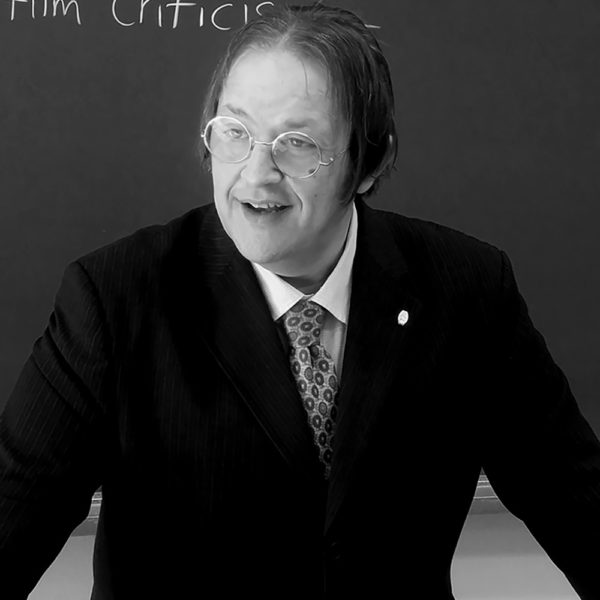 Paul SpicerHiroshima Jougakuin University, Japan
Paul SpicerHiroshima Jougakuin University, Japan -
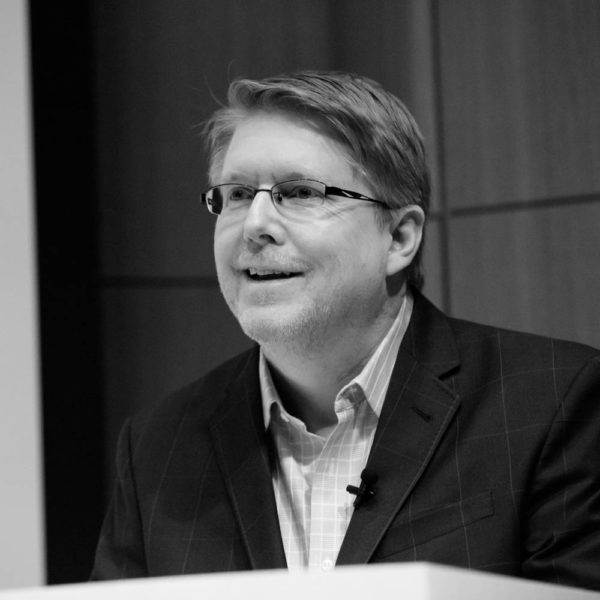 Bradley J. HammMedill School of Journalism, Northwestern University, USA
Bradley J. HammMedill School of Journalism, Northwestern University, USA -
 Gary E. SwansonUniversity of Northern Colorado, USA (fmr.)
Gary E. SwansonUniversity of Northern Colorado, USA (fmr.)
MediAsia2019 Review Committee
- Dr Maria Guajardo, Soka University, Japan
- Dr Virgil Hawkins, Osaka School of International Public Policy (OSIPP), Osaka University, Japan
- Dr Alexander Klemm, Webster University of Thailand, Thailand
- Dr Chin-Pang Lei, University of Macau, Macau
- Mr Timothy W. Pollock, Hagoromo University of International Studies, Japan
- Dr Rachna Sharma, Lady Shri Ram College for Women, University of Delhi, India
- Dr Mario Slugan, Ghent University, Belgium
- Dr Paul Spicer, Hiroshima Jougakuin University, Japan
- Professor Gary E. Swanson, University of Northern Colorado, United States
- Dr Suranti Trisnawati, Institut Teknologi Bandung, Indonesia
